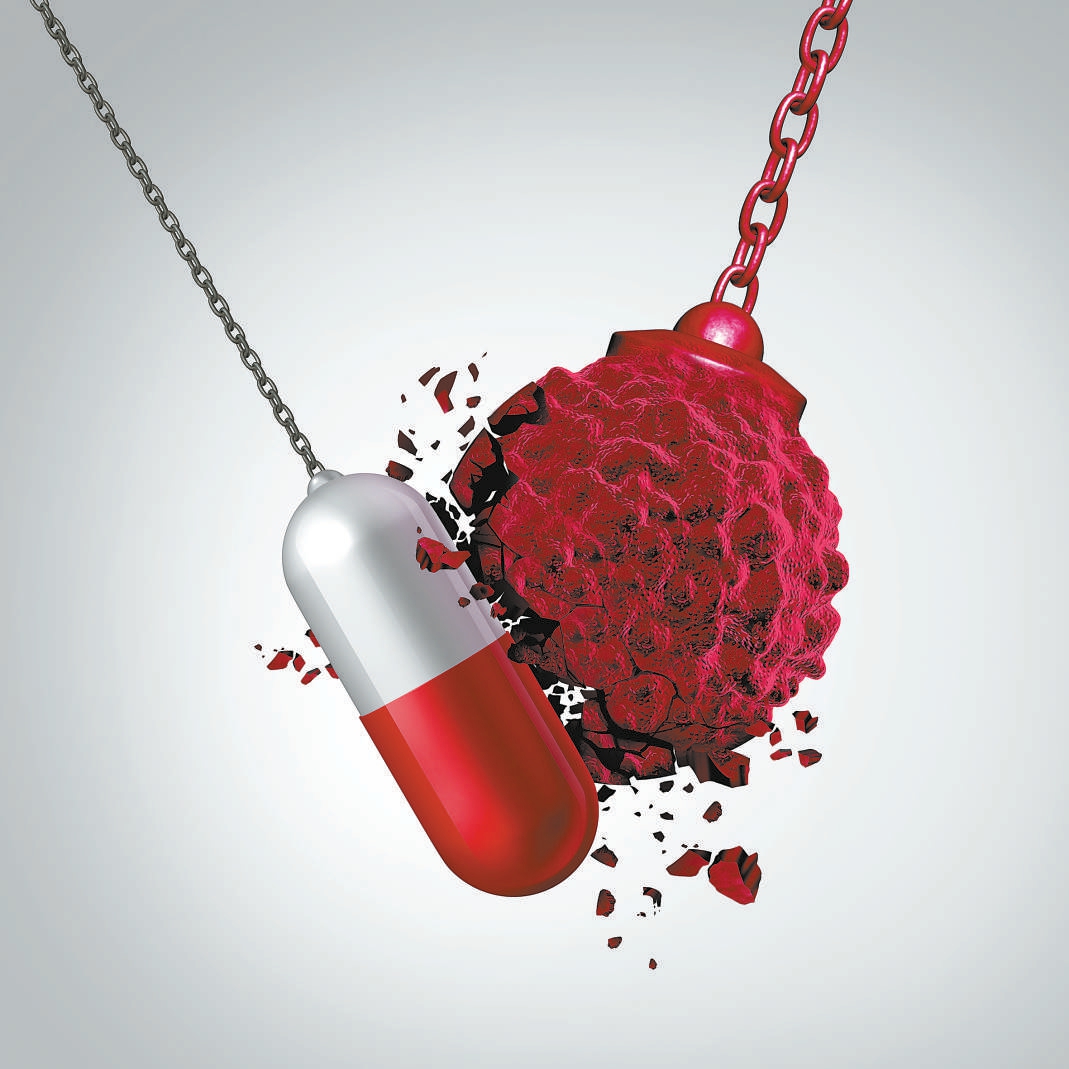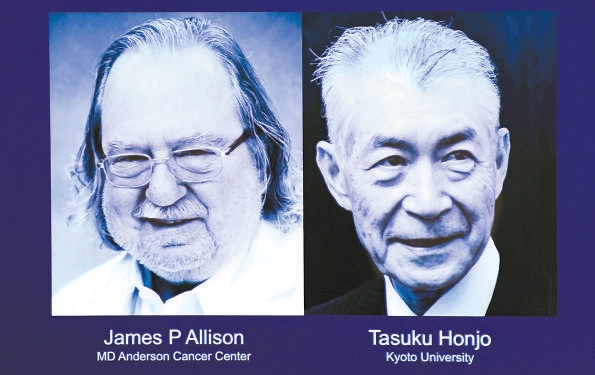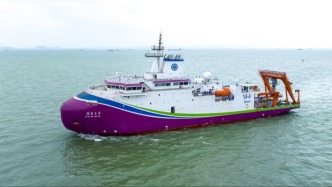Recently, a news about "16 cancer patients were cured of their tumors after only half a year of medication" attracted a lot of media attention. The source of this news comes from the American medical journal "New England Journal of Medicine".
So what is the fuller truth? Has the stubborn disease of cancer really been completely broken? What is the "magic" of this drug? Here we will discuss in detail.


For this incident, foreign media have different reports. First, there are mixed opinions about the number of people participating in treatment. More reports are that there were 18 patients enrolled in the study, but the original paper described that only 12 patients were actually treated with the drug trial. These patients were mismatch repair-deficient stage II or III rectal adenocarcinomas.
For these patients, the researchers administered a new drug, the anti-PD-1 monoclonal antibody single-agent dostarlimab, every 3 weeks for 6 months. Overall, 12 patients completed treatment with the new drug and were followed for at least 6 months. All 12 patients had clinical complete responses, and there were no cases of cancer progression or recurrence during the follow-up period (6 to 25 months), and no grade 3 or higher adverse events were identified.
Further interpretation, there may be more details and content that need to be reviewed.
One is that this cancer is only in patients with mismatch repair deficient stage II or III rectal adenocarcinoma, not all rectal cancers and all stages (stages 0-IV). Mismatch repair-deficient rectal adenocarcinoma accounts for only 5% to 10% of all rectal cancer patients, and the new drug is ineffective against the vast majority of rectal cancers because the two genes are different.
Second, the patients who received treatment only had clinical symptoms disappeared, not cured. For cure, there is a common standard, that is, no recurrence after 5 years of treatment, that is, a 5-year survival period can be called a cure. Strictly speaking, it is only a cure that never recurs after treatment, and the 5-year survival period is only a relative cure. The follow-up period of these 12 patients is only 6 months, therefore, it is necessary to continue follow-up and observation, at least 25 months, and 5 years without recurrence, to be considered cured.
Therefore, the authors of this study concluded with caution: MMR-deficient advanced rectal adenocarcinoma is highly sensitive to the drug PD-1 blockade and requires longer follow-up to assess outcomes.
However, the results of this study are also encouraging, as Dr. Diaz, one of the study participants, said, this is unprecedented in the history of cancer. Despite the small number of patients enrolled in the experimental treatment, each patient achieved complete remission, a result that was previously unheard of.
In addition, the same rectal cancer and other cancers can also be treated with different immune checkpoint inhibitors, such as other PD-1 inhibitors pembrolizumab and nivolumab, which can achieve similar efficacy. However, this treatment has many side effects, the most common of which are fatigue, anemia, diarrhea, and nausea, and in severe cases elevated transaminases, sepsis, and acute renal failure. Due to the use of immunosuppressive agents, adverse reactions such as immune pneumonia, immune colitis, and immune hepatitis may also occur. In contrast, none of the 12 patients who received the new drug intravenously experienced side effects.
The drug is given every 3 weeks for 6 months and costs about $11,000 per dose. After 6 months, the total cost is about 94,000 US dollars, which is also a big burden for ordinary people.
2 "Magic" comes from letting the body's own immune system work
Judging from foreign media reports, the new drug dostarlimab does have its "magic" properties, so where does its "magic power" come from?
It's not mysterious, but the idea comes from liberating the body's own immune system, tearing off the mask of cancer cells, allowing the body's own immune system to recognize and destroy them. The research and development of this kind of anti-immunosuppressive drug has been a popular track for anti-cancer research in recent years, and many achievements have been made one after another. The new drug dostarlimab is a "rookie" on this popular track. The principle of this starts with the winner of the 2018 Nobel Prize in Physiology or Medicine.
Although chemotherapy and radiotherapy are effective in the treatment of cancer, the side effects are too great, and there will be the effect of "killing a thousand cancers and injuring normal cells eight hundred". Therefore, researchers have been exploring the role of the body's immune system to fight cancer cells.
Allison in the United States and Shusuke Honjo in Japan discovered two molecules that bind immune T cells: CTLA-4 and PD-1/PD-L1, both of which have the function of suppressing the immune system. A new idea comes from this: Doesn't removing them equal to liberating the body's own immune system?
Taking this as an opportunity, a new way to fight disease and cancer was created, that is, to find drugs that inhibit CTLA-4 and PD-1/PD-L1, which is equivalent to releasing the brakes of T cells and allowing T cells to fully exert themselves. The effect of killing cancer cells.
Allison and Honjo won the 2018 Nobel Prize in Physiology or Medicine for their discovery of immunosuppressive molecules. On the basis and principle of their discovery, pharmaceutical companies have been promoted to develop corresponding drugs to treat cancer, and a series of anti-CTLA-4 and anti-PD-1/PD-L1 monoclonal antibody drugs have been produced, which are collectively referred to as immune checkpoints inhibitor.
The current new drug dostarlimab is one of them. Its principle is to inhibit the PD-1 molecule to liberate T cells in the body and let them perform normal or extraordinary functions of killing cancer cells. Such drugs are especially suitable for inoperable advanced stage. Cancer, and patients with severe side effects from radiation and chemotherapy.
In fact, anti-immunosuppressive drugs have shown efficacy long before dostarlimab, and have shown very good results in the treatment of former US President Jimmy Carter.
On August 20, 2015, the 91-year-old Carter held a press conference and announced that he had been diagnosed with advanced melanoma, with four tumor masses in his brain about 2 mm in size. Carter thought his life was on the line at the time, saying his fate "was in the hands of the God he exalted."
However, on December 6, 2015, major mainstream media in the United States reported that Carter issued a statement saying that after his latest brain MRI scan, doctors found no melanoma or melanoma in his brain. new cancer cells.
Carter used a new anti-cancer drug pembrolizumab monoclonal antibody, trade name Chichuda, or pembrolizumab. Months after doctors tried him with Chichuda, which had just received emergency approval from the U.S. Food and Drug Administration, all four of Carter's melanoma metastases in his brain had disappeared. This was regarded as a miracle in the treatment of cancer by immune regulation at the time, and the use of monoclonal antibody to block the immunosuppressive molecule PD-1 to treat cancer achieved excellent results.
3 Various anti-cancer drugs on the new track set sail
In fact, there are many drugs that inhibit PD-1 molecules. In addition to pembrolizumab, there is also nivolumab. In a phase 3 clinical trial, nivolumab was effective in 32% of patients with metastatic melanoma, with sustained efficacy in 95% of patients.
Both pembrolizumab and nivolumab block the inhibitory effect of PD-1 molecules on T cells, so that T cells have a powerful effect of killing cancer cells. The two monoclonal antibody drugs were approved by the U.S. Food and Drug Administration in 2014. Nivolumab can also be used to treat melanoma, non-small cell lung cancer, renal cell carcinoma, Hodgkin's lymphoma, head and neck squamous cell carcinoma, urothelial carcinoma, colorectal cancer, hepatocellular carcinoma, etc.
According to the principle that the CTLA-4 molecule discovered by Allison inhibits T cells, some pharmaceutical companies in the United States have developed ipilimumab, whose trade name is ipilimumab. This monoclonal antibody can specifically bind to CTLA-4 molecules on the surface of T cells, preventing the inhibition of T cells by CTLA-4 molecules. The results of the phase 3 trial of ipilimumab were that about 20% of patients survived beyond 3 years, with some still alive after 10 or 11 years. As a result, ipilimumab was first approved by the U.S. Food and Drug Administration in 2011 for the treatment of melanoma.
At present, there are 253 PD-1/PD-L1 antibody combination drug target combinations being tested in the world, but only a few combinations are fortunate to enter Phase 3 trials, and most of them were eliminated in Phase 2 trials. At present, PD-1 inhibitors are the most commonly used basic drugs for cancer treatment, followed by anti-PD-L1 monoclonal antibodies.
Whether it is anti-PD-1 monoclonal antibody, anti-PD-L1 monoclonal antibody, or anti-CTLA-4 monoclonal antibody, the current effective rate of cancer treatment is about 30%, and there are many side effects, the most common side effects are fatigue, shortness of breath, musculoskeletal pain, decreased appetite, cough, nausea, and constipation; the most serious side effects are severe immune-mediated Colon, liver, kidneys, and hormone-producing glands.
Now, as an anti-PD-1 molecule monoclonal antibody drug, dostarlimab has achieved clinical complete remission in 12 patients with mismatch repair deficient stage II or III rectal adenocarcinoma. It should be said that this drug and anticancer A new result of the principle. Moreover, the new drug has also undergone a series of trials. Dostarlimab was first identified as potentially effective in endometrial cancer in 2019, and was approved by the U.S. Food and Drug Administration in April 2021 for recurrent or advanced mismatch repair-deficient endometrial cancer.
The cancer treatment effect of immune checkpoint inhibitors still needs to be tested in long-term clinical practice. Therefore, the 12 patients who took the dostarlimab drug and more patients in the future also need to be continuously observed in order to obtain the most real and comprehensive conclusions. This makes cancer treatment both effective and safe.
So what is the fuller truth? Has the stubborn disease of cancer really been completely broken? What is the "magic" of this drug? Here we will discuss in detail.



Allison (left) and Honjo (right) won the 2018 Nobel Prize in Physiology or Medicine for their discovery of immunosuppressive molecules.
1 All cured or exaggerated, it is true that the curative effect is significantFor this incident, foreign media have different reports. First, there are mixed opinions about the number of people participating in treatment. More reports are that there were 18 patients enrolled in the study, but the original paper described that only 12 patients were actually treated with the drug trial. These patients were mismatch repair-deficient stage II or III rectal adenocarcinomas.
For these patients, the researchers administered a new drug, the anti-PD-1 monoclonal antibody single-agent dostarlimab, every 3 weeks for 6 months. Overall, 12 patients completed treatment with the new drug and were followed for at least 6 months. All 12 patients had clinical complete responses, and there were no cases of cancer progression or recurrence during the follow-up period (6 to 25 months), and no grade 3 or higher adverse events were identified.
Further interpretation, there may be more details and content that need to be reviewed.
One is that this cancer is only in patients with mismatch repair deficient stage II or III rectal adenocarcinoma, not all rectal cancers and all stages (stages 0-IV). Mismatch repair-deficient rectal adenocarcinoma accounts for only 5% to 10% of all rectal cancer patients, and the new drug is ineffective against the vast majority of rectal cancers because the two genes are different.
Second, the patients who received treatment only had clinical symptoms disappeared, not cured. For cure, there is a common standard, that is, no recurrence after 5 years of treatment, that is, a 5-year survival period can be called a cure. Strictly speaking, it is only a cure that never recurs after treatment, and the 5-year survival period is only a relative cure. The follow-up period of these 12 patients is only 6 months, therefore, it is necessary to continue follow-up and observation, at least 25 months, and 5 years without recurrence, to be considered cured.
Therefore, the authors of this study concluded with caution: MMR-deficient advanced rectal adenocarcinoma is highly sensitive to the drug PD-1 blockade and requires longer follow-up to assess outcomes.
However, the results of this study are also encouraging, as Dr. Diaz, one of the study participants, said, this is unprecedented in the history of cancer. Despite the small number of patients enrolled in the experimental treatment, each patient achieved complete remission, a result that was previously unheard of.
In addition, the same rectal cancer and other cancers can also be treated with different immune checkpoint inhibitors, such as other PD-1 inhibitors pembrolizumab and nivolumab, which can achieve similar efficacy. However, this treatment has many side effects, the most common of which are fatigue, anemia, diarrhea, and nausea, and in severe cases elevated transaminases, sepsis, and acute renal failure. Due to the use of immunosuppressive agents, adverse reactions such as immune pneumonia, immune colitis, and immune hepatitis may also occur. In contrast, none of the 12 patients who received the new drug intravenously experienced side effects.
The drug is given every 3 weeks for 6 months and costs about $11,000 per dose. After 6 months, the total cost is about 94,000 US dollars, which is also a big burden for ordinary people.
2 "Magic" comes from letting the body's own immune system work
Judging from foreign media reports, the new drug dostarlimab does have its "magic" properties, so where does its "magic power" come from?
It's not mysterious, but the idea comes from liberating the body's own immune system, tearing off the mask of cancer cells, allowing the body's own immune system to recognize and destroy them. The research and development of this kind of anti-immunosuppressive drug has been a popular track for anti-cancer research in recent years, and many achievements have been made one after another. The new drug dostarlimab is a "rookie" on this popular track. The principle of this starts with the winner of the 2018 Nobel Prize in Physiology or Medicine.
Although chemotherapy and radiotherapy are effective in the treatment of cancer, the side effects are too great, and there will be the effect of "killing a thousand cancers and injuring normal cells eight hundred". Therefore, researchers have been exploring the role of the body's immune system to fight cancer cells.
Allison in the United States and Shusuke Honjo in Japan discovered two molecules that bind immune T cells: CTLA-4 and PD-1/PD-L1, both of which have the function of suppressing the immune system. A new idea comes from this: Doesn't removing them equal to liberating the body's own immune system?
Taking this as an opportunity, a new way to fight disease and cancer was created, that is, to find drugs that inhibit CTLA-4 and PD-1/PD-L1, which is equivalent to releasing the brakes of T cells and allowing T cells to fully exert themselves. The effect of killing cancer cells.
Allison and Honjo won the 2018 Nobel Prize in Physiology or Medicine for their discovery of immunosuppressive molecules. On the basis and principle of their discovery, pharmaceutical companies have been promoted to develop corresponding drugs to treat cancer, and a series of anti-CTLA-4 and anti-PD-1/PD-L1 monoclonal antibody drugs have been produced, which are collectively referred to as immune checkpoints inhibitor.
The current new drug dostarlimab is one of them. Its principle is to inhibit the PD-1 molecule to liberate T cells in the body and let them perform normal or extraordinary functions of killing cancer cells. Such drugs are especially suitable for inoperable advanced stage. Cancer, and patients with severe side effects from radiation and chemotherapy.
In fact, anti-immunosuppressive drugs have shown efficacy long before dostarlimab, and have shown very good results in the treatment of former US President Jimmy Carter.
On August 20, 2015, the 91-year-old Carter held a press conference and announced that he had been diagnosed with advanced melanoma, with four tumor masses in his brain about 2 mm in size. Carter thought his life was on the line at the time, saying his fate "was in the hands of the God he exalted."
However, on December 6, 2015, major mainstream media in the United States reported that Carter issued a statement saying that after his latest brain MRI scan, doctors found no melanoma or melanoma in his brain. new cancer cells.
Carter used a new anti-cancer drug pembrolizumab monoclonal antibody, trade name Chichuda, or pembrolizumab. Months after doctors tried him with Chichuda, which had just received emergency approval from the U.S. Food and Drug Administration, all four of Carter's melanoma metastases in his brain had disappeared. This was regarded as a miracle in the treatment of cancer by immune regulation at the time, and the use of monoclonal antibody to block the immunosuppressive molecule PD-1 to treat cancer achieved excellent results.
3 Various anti-cancer drugs on the new track set sail
In fact, there are many drugs that inhibit PD-1 molecules. In addition to pembrolizumab, there is also nivolumab. In a phase 3 clinical trial, nivolumab was effective in 32% of patients with metastatic melanoma, with sustained efficacy in 95% of patients.
Both pembrolizumab and nivolumab block the inhibitory effect of PD-1 molecules on T cells, so that T cells have a powerful effect of killing cancer cells. The two monoclonal antibody drugs were approved by the U.S. Food and Drug Administration in 2014. Nivolumab can also be used to treat melanoma, non-small cell lung cancer, renal cell carcinoma, Hodgkin's lymphoma, head and neck squamous cell carcinoma, urothelial carcinoma, colorectal cancer, hepatocellular carcinoma, etc.
According to the principle that the CTLA-4 molecule discovered by Allison inhibits T cells, some pharmaceutical companies in the United States have developed ipilimumab, whose trade name is ipilimumab. This monoclonal antibody can specifically bind to CTLA-4 molecules on the surface of T cells, preventing the inhibition of T cells by CTLA-4 molecules. The results of the phase 3 trial of ipilimumab were that about 20% of patients survived beyond 3 years, with some still alive after 10 or 11 years. As a result, ipilimumab was first approved by the U.S. Food and Drug Administration in 2011 for the treatment of melanoma.
At present, there are 253 PD-1/PD-L1 antibody combination drug target combinations being tested in the world, but only a few combinations are fortunate to enter Phase 3 trials, and most of them were eliminated in Phase 2 trials. At present, PD-1 inhibitors are the most commonly used basic drugs for cancer treatment, followed by anti-PD-L1 monoclonal antibodies.
Whether it is anti-PD-1 monoclonal antibody, anti-PD-L1 monoclonal antibody, or anti-CTLA-4 monoclonal antibody, the current effective rate of cancer treatment is about 30%, and there are many side effects, the most common side effects are fatigue, shortness of breath, musculoskeletal pain, decreased appetite, cough, nausea, and constipation; the most serious side effects are severe immune-mediated Colon, liver, kidneys, and hormone-producing glands.
Now, as an anti-PD-1 molecule monoclonal antibody drug, dostarlimab has achieved clinical complete remission in 12 patients with mismatch repair deficient stage II or III rectal adenocarcinoma. It should be said that this drug and anticancer A new result of the principle. Moreover, the new drug has also undergone a series of trials. Dostarlimab was first identified as potentially effective in endometrial cancer in 2019, and was approved by the U.S. Food and Drug Administration in April 2021 for recurrent or advanced mismatch repair-deficient endometrial cancer.
The cancer treatment effect of immune checkpoint inhibitors still needs to be tested in long-term clinical practice. Therefore, the 12 patients who took the dostarlimab drug and more patients in the future also need to be continuously observed in order to obtain the most real and comprehensive conclusions. This makes cancer treatment both effective and safe.



Comments